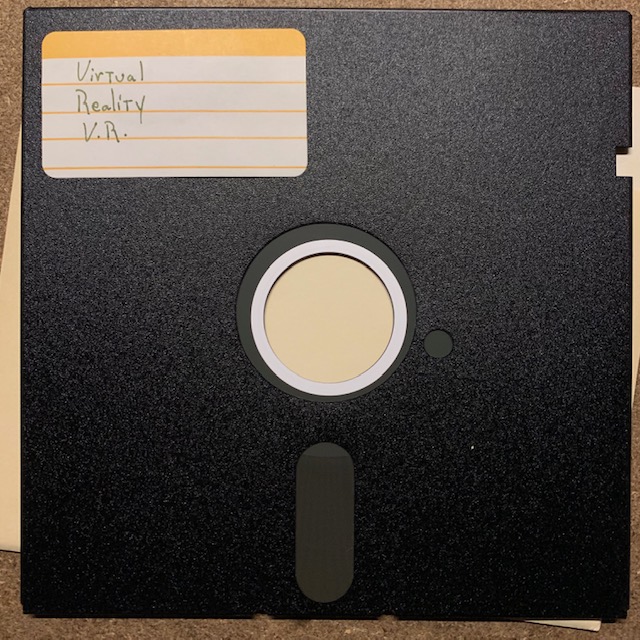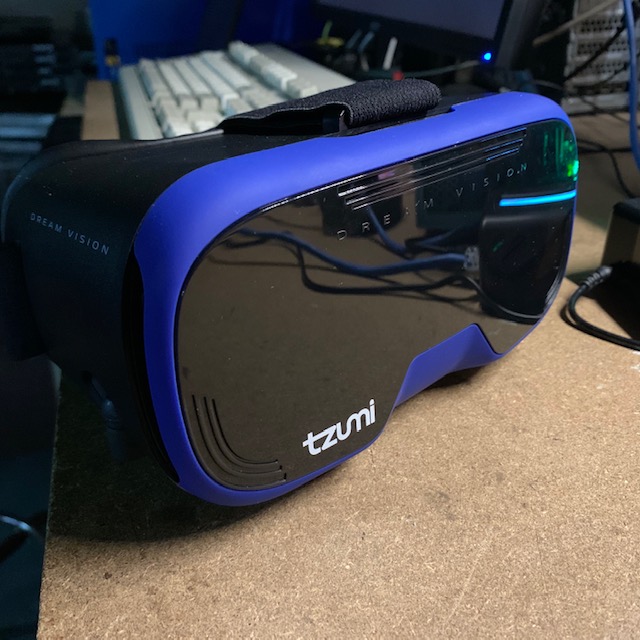When I first used the term VROS ( Virtual Reality Operating System ) back in the early 1990's anything involving virtual reality was novel. More than two decades have passed, the term "VR" has become mainstream and the equipment is accessible to almost anyone. So what makes VROS remain unique?

The first of my Virtual Reality experiments began around 1988
VROS is a computing system designed from the ground-up to provide an immersive computing environment. Originally intended as an alternative operating system for i386 PC's, the purpose is to provide a general-purpose personal computer with a virtual reality interface. In 1990 I never could have imagined the diversity and accessibility of computing hardware we now have today, and my designs for VROS have evolved accordingly.

_A $150 smartphone and a $15 HMD case today is at least 10x better than $1M of VR hardware in 1990 _
The personal computer part is important, because VROS is not only a means of interacting with environments built by other people, but more importantly to provide the user with the tools to build their own virtual environments and immersive applications.
This is the key difference between VROS and the virtual reality systems I'm aware of today. The primary goal is to put the power of this technology into the widest range of hands possible to cultivate the development of applications that have yet to be imagined.
Like the hackers in basements who built the first personal computers out of calculator chips , I can't imagine the things that others will do with what I'm building. I want to use what I know to build something that can be used by someone without my abilities in a way that lets them express their creativity and imagination without having to first follow the same path I did. This is the power of personal computing, and it's what created the applications that powered the first personal computer revolution.
It's also the same pattern that allowed the world-wide web to be used in a second revolution of computer and communications applications, and it's the same pattern that used Arduino and then Raspberry Pi to launch a revolution in embedded computing and smart devices. I think it's the best way to discover new uses for computing technology by utilizing the creativity of people beyond the specialties of computer science and engineering.
I believe that something like VROS could spark a similar revolution by empowering everyone, not just programmers like me, to create new, exciting, and wide-ranging applications for immersive technology.
